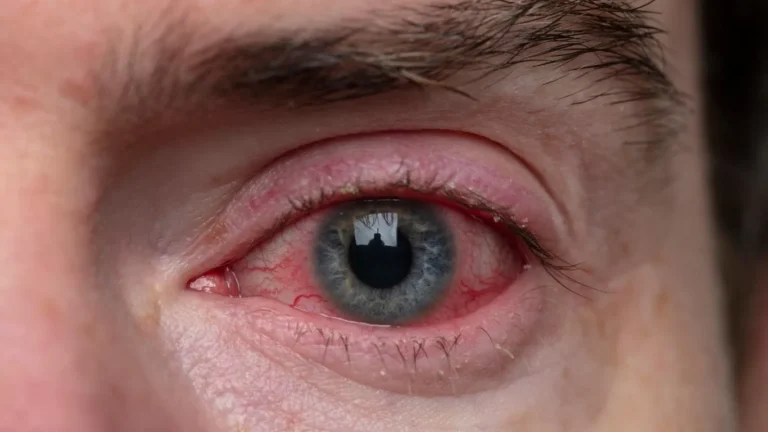Can Asthma Cause Fullness After Meals? Understanding the Link
Have you ever wondered, can asthma cause fullness after meals? As a pulmonary nurse practitioner, I’ve encountered patients who mention unusual symptoms that seem unrelated at first glance—like that uncomfortable sensation of fullness right after eating. It’s easy to think of asthma purely as a breathing issue, but the reality can be more complex. Sometimes, asthma and digestive sensations intertwine in surprising ways. Let’s explore this connection and shed light on what might be going on.
Understanding Asthma Beyond the Lungs

Asthma is primarily known as a chronic respiratory condition characterized by inflammation and narrowing of the airways. This leads to symptoms like wheezing, coughing, and shortness of breath. But the impact of asthma doesn’t stop there. In my years working with asthma patients, I’ve noticed that many complain about gastrointestinal symptoms—one of which is a sensation of fullness or bloating after meals.
Why does this happen? It boils down to how asthma can influence other body systems, especially the digestive tract. There’s a lot of overlap between respiratory health and gut health, and the nerves and muscles involved in breathing are closely linked with those that manage digestion.
The Link Between Asthma and Digestive Symptoms
Many people don’t realize that asthma can sometimes cause or worsen symptoms like acid reflux or indigestion. These conditions can cause the stomach to feel overly full or uncomfortable after eating. When asthma is poorly controlled, the pressure changes inside the chest and abdomen during breathing can contribute to reflux of stomach acid into the esophagus—this often leads to that heavy, bloated feeling.
In clinical practice, I’ve seen patients describe their fullness as a tightness or even a pressure that feels like it’s pushing up under their ribs. This isn’t just hunger-related fullness; it can be quite distressing and persistent.
- Asthma medications, especially oral corticosteroids, might also contribute to gastrointestinal symptoms.
- The inflammation in the airways can affect nearby nerves that influence stomach function.
- Stress and anxiety related to asthma attacks can worsen digestion and cause sensations of bloating or fullness.
How Does Asthma Medically Cause Fullness After Meals?
One important medical explanation is the connection between asthma and a condition called gastroesophageal reflux disease (GERD). GERD is common in people with asthma and can cause acid to flow back into the esophagus, creating irritation and that unmistakable sensation of fullness and discomfort after eating.
It’s a bit of a vicious cycle: GERD can trigger asthma symptoms, and asthma can worsen reflux. From my experience, managing reflux symptoms often helps reduce the post-meal fullness that asthmatic patients complain about.
In addition to GERD, the muscle spasms in the airway that asthma causes can sometimes extend to the muscles around the stomach and esophagus, causing discomfort. The diaphragm, which plays a role in both breathing and digestion, can be affected by asthma-related tightness and spasms.
Common Symptoms and Signs to Watch For

When I assess patients, I ask about various digestive symptoms that often fly under the radar. Here are some signs that might suggest your fullness after meals is related to asthma:
- A tight, heavy sensation in the chest or upper stomach shortly after eating.
- Frequent burping or bloating that doesn’t seem linked to the type or amount of food.
- Worsening of asthma symptoms like coughing or wheezing after meals.
- Feeling of acid reflux or heartburn accompanying the fullness.
- Symptoms that improve with asthma or reflux treatments.
Recognizing these clues can be a game-changer in managing both asthma and digestive discomfort effectively.
Managing Asthma-Related Fullness After Meals

From my years as a pulmonary nurse practitioner, one thing is clear: tackling that uncomfortable fullness after eating when you have asthma means addressing both respiratory and digestive health simultaneously. You can’t just treat one and expect the other to fix itself. The body’s systems are intertwined, and understanding this connection is key to feeling better.
Asthma Control: The First Step
If you’re wondering, can asthma cause fullness after meals, the first practical step is getting your asthma well under control. This means:
- Consistent use of prescribed asthma medications, like inhaled corticosteroids or long-acting bronchodilators, to keep inflammation in check.
- Regular check-ins with your healthcare provider to monitor lung function and adjust treatment as needed.
- Identifying and avoiding asthma triggers such as allergens, smoke, or irritants that might worsen symptoms.
When your asthma is well-managed, the chest tightness and pressure that contribute to that post-meal fullness often improve, sometimes significantly.
Addressing GERD and Digestive Issues
As I mentioned earlier, GERD plays a major role in the fullness after meals that many asthma patients experience. Based on my clinical observations, treating GERD can be a game changer. Here’s what tends to help:
- Dietary modifications: Avoiding trigger foods like spicy dishes, caffeine, chocolate, and carbonated drinks that can worsen reflux.
- Eating smaller, more frequent meals: This reduces the pressure on your stomach and lowers the chance of acid reflux.
- Not lying down right after eating: Giving gravity a hand in keeping stomach acid where it belongs.
- Medications like proton pump inhibitors or antacids: Often prescribed alongside asthma treatments to reduce stomach acid and protect the esophagus.
When both asthma and reflux are treated together, many patients notice a marked reduction in that uncomfortable fullness sensation.
The Role of Stress and Lifestyle in Asthma and Fullness

One thing I’ve learned on the job is that asthma isn’t just about physical symptoms—it’s also deeply tied to how stress and lifestyle affect your body. Stress can worsen asthma flare-ups and digestive symptoms like bloating and fullness. When your body is in a stressed state, your digestion tends to slow down, and acid reflux becomes more likely.
So, managing stress is a crucial part of managing asthma-related fullness. Some simple yet effective strategies I often recommend include:
- Mindful breathing exercises: These not only calm your mind but can also help ease asthma symptoms by relaxing airway muscles.
- Regular physical activity: Tailored to your asthma control level, exercise can improve lung function and promote better digestion.
- Good sleep hygiene: Poor sleep can worsen asthma and digestion, so creating a restful environment is key.
From my experience, when patients start paying attention to these lifestyle factors, they often report less frequent fullness and overall better well-being.
When to See a Specialist

Sometimes, asthma and fullness after meals can be tricky to manage on your own, especially if symptoms persist despite following advice. That’s when it’s important to consult a specialist.
If you’re experiencing any of the following, definitely reach out to your healthcare provider or a pulmonologist:
- Persistent fullness after eating that doesn’t improve with lifestyle changes or GERD treatment.
- Frequent asthma flare-ups triggered by meals or digestive discomfort.
- Severe acid reflux symptoms such as chest pain, difficulty swallowing, or persistent heartburn.
- Unexplained weight loss or changes in appetite along with fullness.
In these cases, additional testing like lung function tests, endoscopy, or pH monitoring of the esophagus might be recommended to get to the root of the problem. This ensures you receive targeted treatment tailored to your specific needs.
Practical Tips to Reduce Fullness After Meals When You Have Asthma

From working closely with patients over the years, I’ve gathered a handful of simple, practical tips that can make a big difference if you’re wondering can asthma cause fullness after meals and you’re struggling with that uncomfortable sensation. These are lifestyle tweaks and habits that don’t require fancy treatments but often yield solid results:
- Mind your posture while eating. Sitting up straight helps digestion and reduces pressure on your diaphragm and stomach. Avoid slouching or lying down right after meals.
- Chew your food slowly and thoroughly. Digestion actually starts in your mouth, and slowing down can ease the workload on your stomach and intestines.
- Stay hydrated, but avoid gulping large amounts of liquid with meals. Drinking too much at once can increase bloating and fullness.
- Keep a food diary. Track what you eat and how you feel afterward. You might spot certain foods that trigger your fullness or worsen your asthma symptoms.
- Incorporate relaxation techniques after eating. Gentle walks, deep breathing, or light stretching can aid digestion and ease any tension that could be making symptoms worse.
These small changes can be surprisingly effective, especially when paired with good asthma management and reflux treatment.
Personal Experience: A Patient’s Journey

I remember a patient named Sarah, who came to me frustrated and exhausted. She’d been dealing with asthma for years, but lately, after every meal, she felt this overwhelming fullness that made her avoid eating sometimes. She was worried it was something serious beyond asthma.
After a detailed discussion, we discovered Sarah also had untreated GERD. We worked on optimizing her asthma medications, introduced reflux management strategies, and tweaked her diet and lifestyle. Over a few months, Sarah’s post-meal fullness dramatically improved, and so did her overall quality of life. She felt empowered once she understood how her asthma and digestion were connected—and how to tackle both.
Stories like Sarah’s remind me that symptoms which seem unrelated or unusual can often be explained once we look at the whole picture. It’s always worth digging a little deeper and tailoring treatment to each person’s unique experience.
When to Seek Medical Advice and Further Testing
If you’re still asking, can asthma cause fullness after meals? the answer is yes, it can—but it’s important to know when to get professional help. Persistent fullness, especially if accompanied by other symptoms like severe reflux, difficulty swallowing, or weight loss, warrants further evaluation.
Your healthcare provider might suggest tests such as:
- Pulmonary function tests to assess asthma control.
- Upper endoscopy to check for inflammation or damage in the esophagus caused by acid reflux.
- pH monitoring to measure acid levels in the esophagus over time.
- Allergy testing if food sensitivities are suspected to play a role.
Remember, good communication with your healthcare team is key. Don’t hesitate to share all your symptoms—even the ones that seem odd or unrelated.
References
- https://www.asthma.org/
- https://www.digestivehealth.org/
- https://www.lung.org/
- https://www.niddk.nih.gov/
Disclaimer
The information provided here is intended for educational purposes only and should not replace professional medical advice, diagnosis, or treatment. If you experience persistent or worsening symptoms, please consult a healthcare professional for personalized care. Individual cases vary, and only a qualified provider can determine the appropriate course of action based on your specific condition.

Bianca Nala is a compassionate Nurse Practitioner with a strong background in primary and respiratory care. As a health writer for Healthusias.com, she combines her clinical expertise with a talent for clear, relatable storytelling to help readers better understand their health. Bianca focuses on topics like asthma, COPD, chronic cough, and overall lung health, aiming to simplify complex medical topics without losing accuracy. Whether she’s treating patients or writing articles, Bianca is driven by a single goal: making quality healthcare knowledge accessible to everyone.





